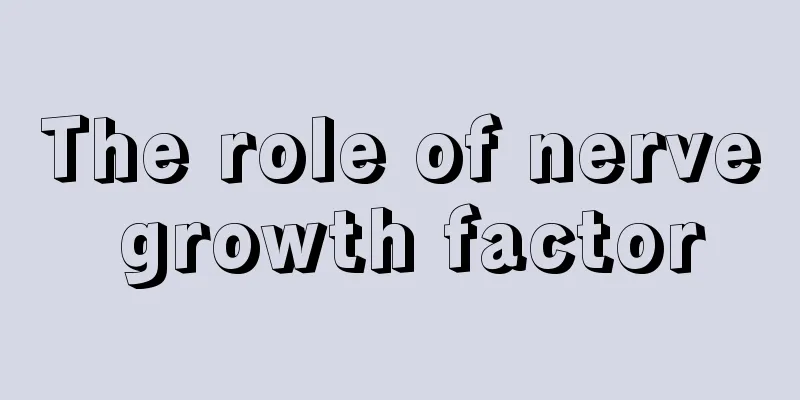The role of nerve growth factor

|
Maybe we are not very familiar with nerve growth factor. Indeed, many of us have no problems with our nerves, so naturally we pay less attention to nerve growth factor. However, nerve growth factor is closely related to our daily life. If nerve growth factor cannot grow normally, it will threaten our health. I believe many people are particularly interested in nerve growth factor and want to know specifically what nerve growth factor is and what functions it has. Let us follow the article to learn about it. effect: During a certain period of embryonic development, NGF is essential for the survival of effector neurons. In vitro experiments have confirmed that if NGF is not added to the culture medium, nerve cells can neither grow axons nor survive. NGF and its receptors are also widely distributed in the central nervous system. NGF produced by the hippocampus and cerebral cortex can be retrogradely transported to the basal nucleus of the forebrain via choleretic nerves, maintaining the survival and function of choleretic neurons. In early embryonic development, the central NGF content determines the density of choleretic nerves. NGF content is also high in the cerebellum and hypothalamus that are not innervated by cholesteric nerves, indicating that in addition to cholesteric nerves, NGF also has a nutritional effect on other types of neurons. Neuroprotective effects of nerve growth factor When NGF's effector neurons are damaged, such as by axonal severing, drug damage, or even ischemia or hypoxia, the neurons will undergo a series of pathological changes, including death. Experimental studies have confirmed that NGF can: (1) Inhibit the release of toxic amino acids; (2) Inhibit calcium ion overload; (3) Inhibit the release of superoxide free radicals; (4) Inhibiting mechanisms such as cell apoptosis can significantly reduce or prevent the occurrence of these secondary pathological damages. The effect of nerve growth factor on promoting nerve growth , giving NGF after axon severing will reduce the degeneration and death of some neurons, which will undoubtedly help to increase the possibility of axon regeneration. It also affects the time when axon regeneration starts, the number of neurons involved in regeneration, and the quality and speed of regenerated nerves. The non-neural system effects of NGF are mainly manifested in affecting the activity of immune cells and thus regulating the function of the immune system. Nerve growth factor not only regulates the function of the nervous system, but is also an immune regulatory factor. NGF can inhibit the mitosis of certain tumors and promote their benign differentiation. NGF promotes the repair response of wound tissue and promotes wound healing. The above content introduces us to the relevant situation of nerve growth factor. I believe that the above content satisfies the curiosity of many people. We should also know more about this aspect and understand how our neural brain and organs throughout the body work. I hope that the above content can give everyone a clearer understanding of nerve growth factor. |
<<: Related situations of neurohumoral regulation
>>: What to do if scratched by rusty iron
Recommend
What are the effects of chickenpox vaccination and what should we pay attention to?
Varicella is an infectious disease with a high in...
Is the woody datura flower poisonous?
The Datura flower has always been a mysterious fl...
Does the tourniquet stop bleeding with an elastic rubber strip?
? Whether the bleeding is caused by accidental in...
What is gynecological teratoma and what are its symptoms
Gynecological teratoma is a common ovarian tumor ...
How long does it usually take for osteosarcoma to recur
Osteosarcoma brings pain to life. The patient is ...
Will primary bronchial lung cancer cause vomiting blood?
Will primary bronchial lung cancer cause vomiting...
What is the method of practicing sexual qigong
Practicing qigong has a very good health-care eff...
What is the basis for diagnosing small cell lung cancer
What is the basis for diagnosing small cell lung ...
Children need the company of their parents
Children are very sensitive when they are young, ...
What are the examination methods for rectal cancer
Rectal cancer is a disease that people often enco...
Why does my front tooth hurt and become loose?
The pain and looseness of the front teeth may be ...
How many times a day should you urinate to be considered normal
I believe everyone knows the importance of urinat...
Only by choosing effective methods can bladder cancer patients receive effective treatment
When a disease occurs, treatment is the most impo...
What can children eat to improve immunity?
Nowadays, many children are getting sick more and...
Will nodules grow if both lungs are inflamed?
When some people go to the hospital for a check-u...









